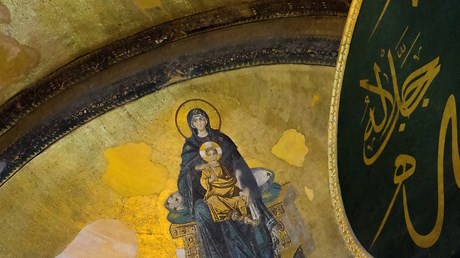In new book, Jordanian pastor and academic says that if Muslims treat evidence for the Bible and Quran consistently, the gospel eyewitnesses authenticate Jesus' crucifixion and resurrection.

For 1,400 years, Christians have wrestled with how to defend their faith to Muslims. While Islam accepts Jesus as a prophet, it denies his divinity. And as for his sacrifice for sin on the cross, the Quran denies the crucifixion and by extension the resurrection, claiming instead that God took him directly to heaven.
Christian responses have often been polemical, seeking to invalidate the message and morality of Muhammad. They have also been apologetic, sometimes employing legal arguments that Muslims view as manmade and changeable—thus lacking authority to adjudicate matters of eternal significance.
Baptist pastor Suheil Madanat seeks instead to ground the authenticity of the gospel account within Islam itself. In Evidence for the Crucifixion and Resurrection of Jesus Christ Examined through Islamic Law, the former president of the Jordan Baptist Convention (2016–2022) consults expert sharia compendiums and relevant scholarly works to learn sharia’s criteria for validating relevant evidence—including eyewitness testimony, confession, expert opinion, and circumstantial evidence—and examines the New Testament accounts against it.
Endorsed by scholars at Southwestern Baptist Theological Seminary, Southern Baptist Theological Seminary, Fuller Theological Seminary, and Jordan Evangelical Theological Seminary in Amman, the book is a new resource for Muslim apologetics and comparative religion. CT interviewed Madanat about liberal source criticism, the divergence in resurrection accounts, and his ultimate hope for Muslims who read his book.
How does traditional Islam look at the Bible?
In principle, they accept both the Old and New Testaments as the word of God, but they believe that they have been largely ...
from Christianity Today Magazine
Umn ministry


.gif)

.gif)
.gif)
